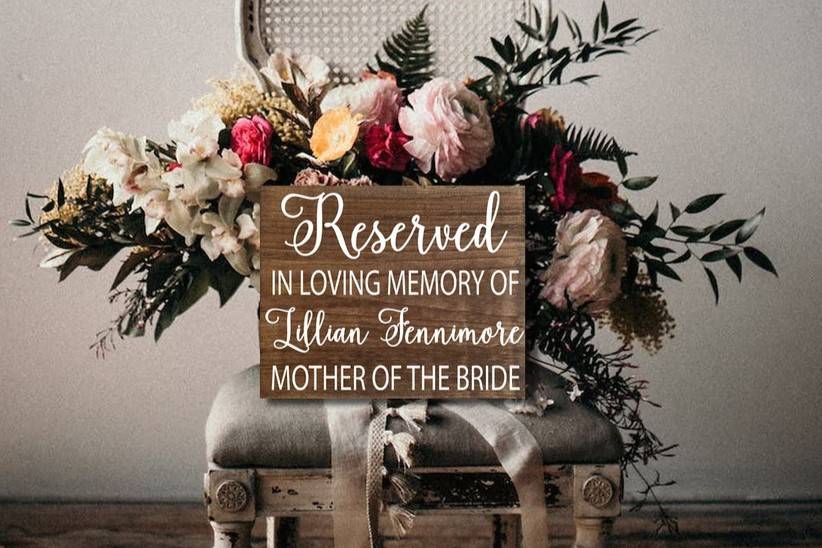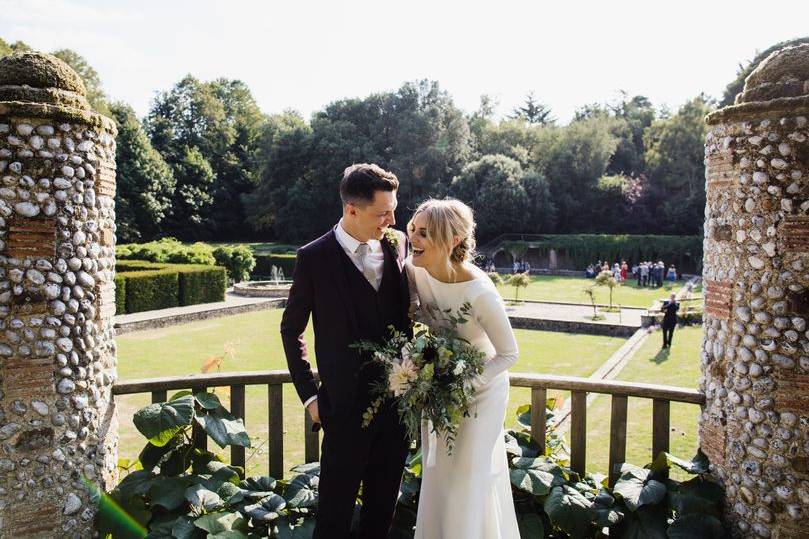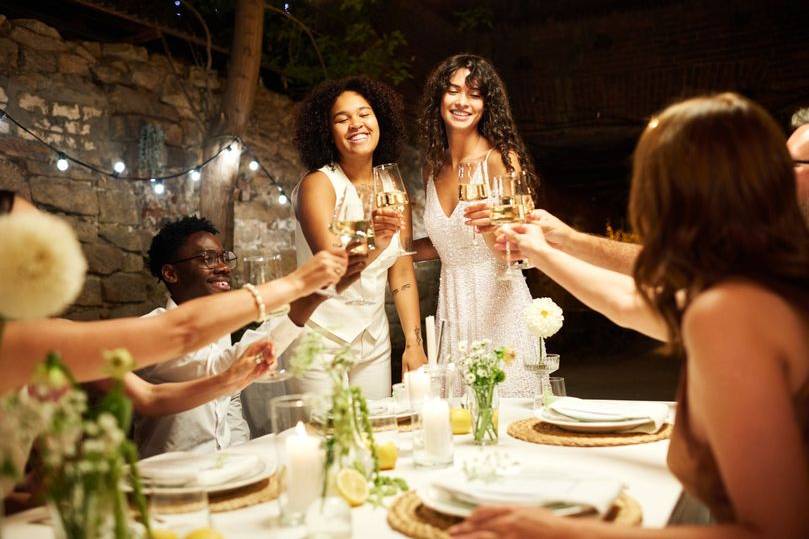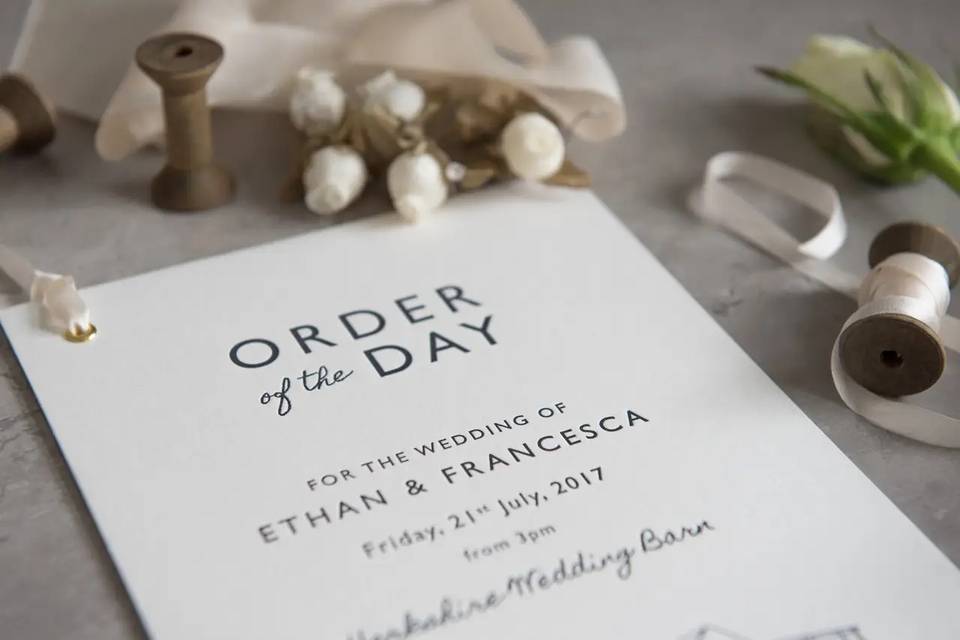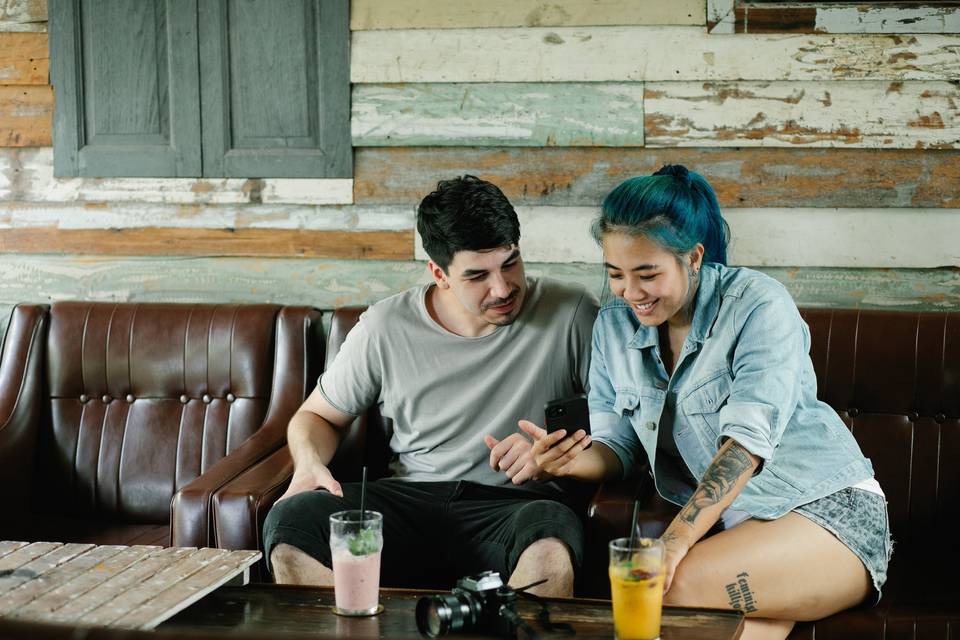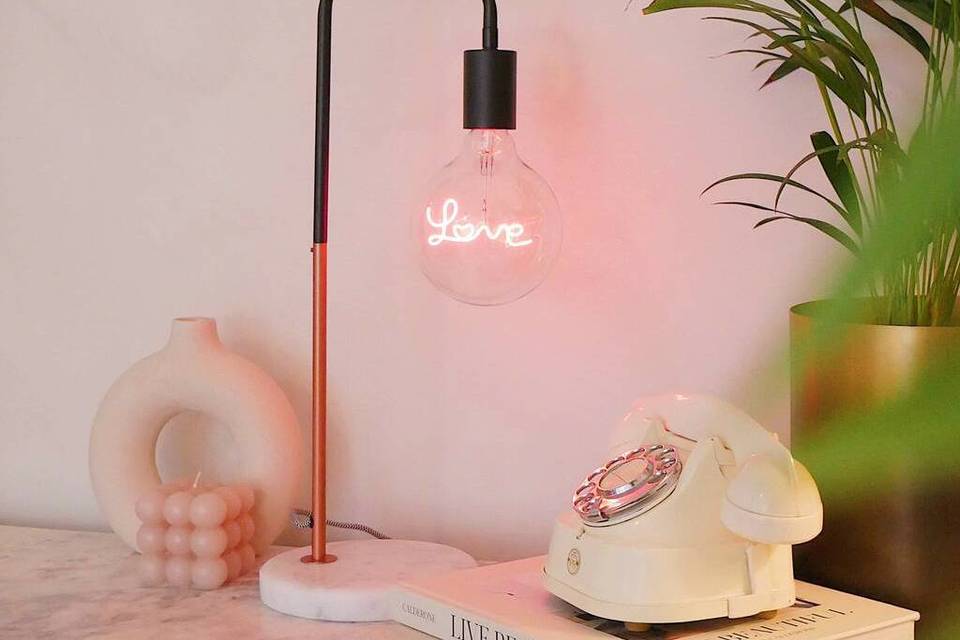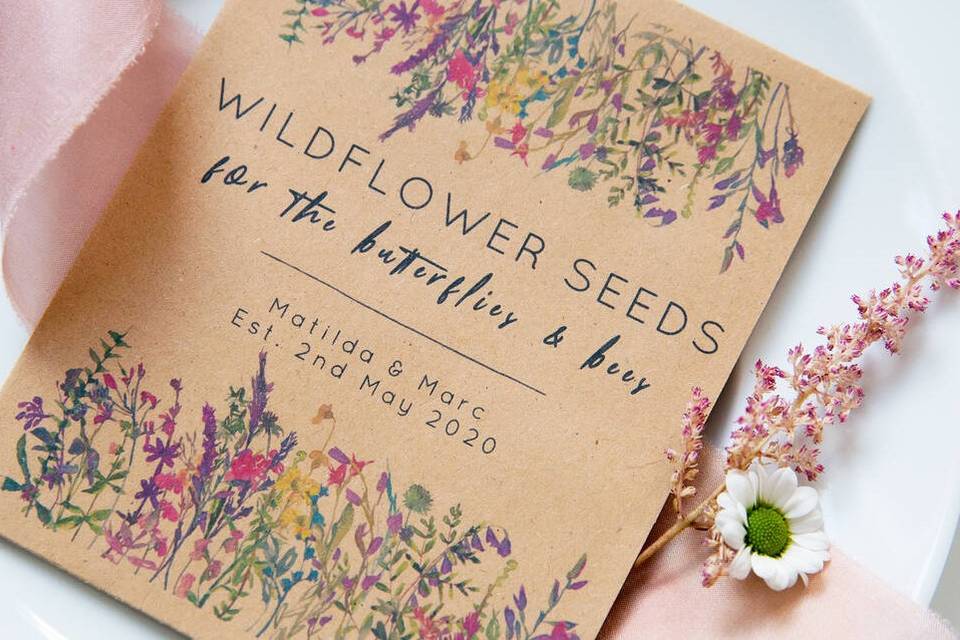Planning a Wedding with a Chronic Illness: My 6 Top Tips
Fashion and lifestyle influencer Ali Hemsley has learnt to navigate life with a chronic illness - but how would it impact her wedding planning? She explains what she discovered about lowering stress levels as she put together her big day


At age 17 I became extremely unwell. Following a virus, I went from being the typical active teenager to being predominantly housebound in a matter of months. I had overwhelming fatigue, despite sleeping for up to 18 hours a day, and my whole body ached. My muscles felt like cement and I struggled to lift a glass of water.
After 6 months, I was diagnosed with ME/CFS and Fibromyalgia. I started to use a walking stick, as I often struggled to walk unaided, and had to move to online study because I wasn't able to physically attend college.
ME/CFS (Chronic Fatigue Syndrome) and Fibromyalgia are both serious, chronic conditions which can severely limit the activities of patients. Some of the common symptoms are extreme fatigue, widespread pain and cognitive issues, but the conditions can also affect mental health and digestion.
I've spent the past 10 years learning more about my conditions and how to manage them, and now fall into the 'Mild' category of ME/CFS. This means that I am able to carry out everyday activities, but with difficulty. Every day I must make choices so that I can keep my energy in the 'safe level' and rest as much as possible to prevent debilitating flare ups. I don't remember what it's like to wake up and not be in pain!
I’ve slowly learnt how to navigate dating, work, socialising, and even exercising with a chronic illness - but when it came to wedding planning, I didn’t know where to start. It felt overwhelming. Planning a wedding is well known as one of the most stressful and tiring times of your life, and when you have a chronic illness it’s even harder!
If you're currently in the process of planning a wedding while suffering with a chronic illness, I hope that sharing my own experience can help you. Here's my top tips to make things a little easier...

1. Minimise Stress through Slow Planning
You’ve just got engaged and want to get married as soon as possible - great! But setting a date 6 months from now means that you need to plan a lot, very quickly. Consider opting for a date further away so that you can plan in stages, reducing your stress and making the whole process much more enjoyable. One of the symptoms that I have to manage is brain fog, so writing everything down has been key for me. I’m always writing notes in my phone, scribbling guest lists on paper or adding ideas to my Pinterest board so I don’t forget them.

Keeping things in one place makes life a lot easier though, and there are lots of great websites and apps available to help you keep track of your budget, guest list and planning. If you prefer to write things down, you'll find tons of beautiful planning books, too! If you really want to alleviate the pressure, you could consider hiring a wedding planner, but it’s important to make sure they understand your needs.
2. Say No to DIY
I immediately started googling ‘DIY Wedding Decor’ in an effort to cut costs... before my mum kindly (but firmly) reminded me of the amount of energy that I would use to turn a pallet into a work of art. DIY or home-made elements might be lovely, and often cheaper, but they come at the cost of your time, energy and potentially health.
Be strict with yourself: is this worth it? How much energy will I use on this? Could I find an alternative? If you really want to do it, ask some friends to join you to share the load.
3. Be Strategic with Wedding Dress Shopping

For me, this was the part I was most excited about… and it didn’t disappoint! However, getting changed is something that I find very physically demanding and so I wanted to minimise the amount of dresses I tried on. I tried on a total of six, and ended up going with the first one I tried! Here are my top tips:
- Do as much online research as possible. Knowing your budget and what style of dresses you like helps narrow down the number of shops you’ll have to go to, and the number of dresses that you’ll have to try on.
- Timing is everything. What I realised very quickly is that you need to pre-book appointments, as most places don’t accept walk ins. If you have to pre-book, go for the time of day that generally works best for you. For me, I usually have more energy late morning or early afternoon - so I’d be looking for slots around that time. I chose to go to WED2B as they don’t book appointments. This meant that I wasn’t stressed about attending at a particular time, I could just go whenever I felt most relaxed and able. (They said that weekday mornings were their quietest times, so aim for then to avoid a queue!)
- It’s a numbers game. As prepared as you can be through research, actually trying on wedding dresses is different. I ended up going for a dress that was nothing like my Pinterest board, or what I had imagined. To decide on a style quickly, try 3 or 4 dresses that are quite different to each other first: for example, one classic fitted, one boho, one princess! This will help you to see which style you really love and what makes you feel the most comfortable - and will save precious time and energy.

4. Turn Your Bridesmaids into Your Support Babes
Your wedding party is there to help and support you throughout the day, so make sure you allow them to do that. For me, giving up control when it comes to my health is really difficult, but I know that it makes such a difference in reducing my stress and preventing flare ups. Help your wedding party help you by sharing what you need and giving them small tasks for the day. You could even make a small flare-up kit (painkillers, lavender oil, ibuprofen gel - whatever helps you!) and ask one of your bridesmaids to make sure it’s on hand.
5. Consider a Venue with Overnight Accommodation
Choosing to stay overnight at your venue is a great idea, and exactly what I’m planning. It’s reassuring to me to know that I have somewhere to go if I need a rest break. As well as your small flare-up kit, why not add some home comforts to your room too? The newlyweds are always being whisked off to take photos, cut the cake or talk to guests - nobody will notice if you pop upstairs for a 20 minute lie down on your acupuncture mat and some peace and quiet. If you feel like you need an excuse for anyone that stops you on your way, “I’m popping upstairs to refresh myself” alludes to touching up your makeup and isn’t entirely inaccurate!
6. Remember, the Day Is about You (and Your Partner)

Ultimately - don’t be afraid to throw the rule book out of the window and do what you need to make your wedding day enjoyable. If you have limited energy, how about a later ceremony time to allow for more rest in the morning? Or even an earlier finish time? Or, you could even split the events across two days! What matters most is you and your partner and the wonderful journey you have ahead. Prioritise your health and happiness and stop worrying about what Aunt Margaret will think.
Ali is getting married in summer 2022. For important and inspiring conversations about mental health and chronic illness, follow her on Instagram @alihemsley.

